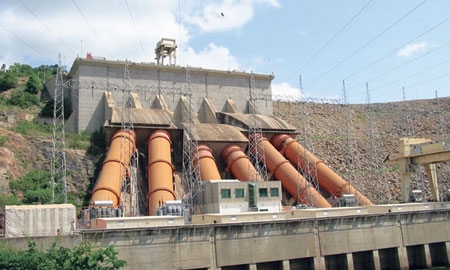With the number of Ghanaians who enjoy reliable and regular access to electrical power supply having risen from half of the nation to over three quarters in the last few years (up from just 15 per cent in 1990), the government’s plan is for electricity to reach 100 per cent of the population by the year 2020.
The driving force behind such an ambitious objective is the
Volta River Authority (VRA) – one of Ghana’s most significant energy enterprises. Along with the contribution of other major companies in the field, the VRA has seen total national generation rise to 2,400MW of electricity, with the goal of reaching 5,000MW within the next three years. As former CEO Kweku Awotwi explained in an interview last year, the VRA is at the forefront of the projects that aim to bring greater power to the people.
“It is an ambitious target, but having said that I think there’s a fair basis to assume that we can achieve a lot of that, maybe all of it. The VRA has concrete plans to add 1,200MW by 2016.”
“We are producers of electricity but it has to be transmitted and also distributed and there is a whole infrastructure to send the power to the end user that must be upgraded”
Kweku Awotwi, former CEO of the Volta River Authority |
And while the VRA’s commitment to enhancing the electricity supply within Ghana has traditionally come from its water resources, Mr Awotwi said that hydro potential is now at capacity (currently more than 60 per cent of the country’s power comes from hydro generation) meaning that its future targets will have to be met in alternative ways.
“All new power requirements will come from different traditional sources; thermal, crude oil, gas or renewables.”
The arrival of cheaper natural gas is being particularly anticipated in Ghana (with its new gas pipeline expected to be completed this year), especially for the VRA who plan to build numerous thermal plants using LNG supplies. Renewable energy meanwhile is also becoming a much greater focus for the company, with Mr Awotwi seeing tremendous potential for further development of solar and wind energies.
“[When] the country passed the renewable energy law in 2011, the idea was that 10 per cent of this [energy] portfolio would be wind, solar and biomass by 2020. What the VRA has done is take this law policy and make it its own. The VRA aims to have 10 per cent of that portfolio in wind and solar by 2020.”

0 COMMENTS